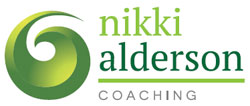A 5 minute read on time ownership and what it means in terms of getting back control of your working day, with additional guidelines on how to achieve time ownership and utilise it to support career progression.
The hands of time
Time and again in coaching sessions I hear clients remark that “There just aren’t enough hours in the day.” In the busy, target-driven legal profession, what lawyer wouldn’t want to hold back the hands of time, given the competing demands on time? Yet the truth of the matter is, we all have the same 24 hours in a day. The bottom line is how well you use it.
Time management v time ownership?
It throws up a conundrum about how best to use time for greater productivity and efficiency. Many people talk about needing “time management” skills or training. My starting point would be how about adopting the phrase “time ownership” not “time management”? It might seem a small point, but if at the outset, we use empowering rather than disempowering language around time, then straightaway you begin to challenge the negative narrative you tell yourself about the untameable beast that is your workload, stress levels or general sense of overwhelm. Owning time provides a sense that you are a more proactive participant of how you expend your energies over your hours, days and weeks.
Planning
Armed with a more helpful narrative, what more can be done to create balance where chaos often reigns? Well, a plan is certainly no bad place to start, and if you haven’t already heard of it, get plugged in to the 6 Ps formula: “Proper prior planning prevents poor performance.”
It doesn’t need to be fancy or over-complicated, although there of plenty of all-singing, all-dancing apps to help should you wish. For me, an old-fashioned piece of paper and a pen will do – my spiral Reporters’ Notepads come into their own when it comes to making a good plan.
Prioritisation
Going back to my earlier point: “No one is too busy in this world. We all have the same 24 hours. It’s all about priorities”. So once you’ve planned your day, put tasks in order of priority.
Using the Eisenhower 4Ds method can be useful here, by assessing the importance and urgency of each task by asking whether it is something you need to “Do, Diarise, Delegate or Delete”. Similarly, Stephen Covey’s Time Management technique can help here, by asking whether things are urgent and important; urgent but not important; not urgent but important; or neither important nor urgent.
Creating this kind of sequence for when tasks need completing will increase productivity no end. Then, even when last minute deadlines cause slippage, overall, you’ll be able to course correct more effectively, quickly getting back on the right track.
Being Present
It’s not often in a professional blog you get opportunity to share a quote from the Kung Fu Panda film, but here goes: “Yesterday is history, tomorrow is a mystery, but today is a gift. That’s why it is called the present”. The truth of it is, “there is only now”, so important to think about how to be present, fully in the moment, whether at work or at home.
This could mean at work time blocking, taking regular breaks and ensuring your working environment fully supports optimum focus. Or both at work and at home, getting as honest as strict with yourself about the ability to avoid digital distraction, which I’ve blogged about many times before [https://nikkialdersoncoaching.com/time-ownership-four-tips-for-success/]. Give yourself permission to unplug.
There’s no better gift to give yourself than the focus, peace and results that come with full focus and attention on whatever the task in hand might be.
Turn the “To do” list into a “Ta Dah” list
With priorities in order, a systemic approach to tackling the “to do” list and full focus on getting stuff done, take a moment to celebrate ticking things off the list – especially the bigger tasks. That way, you turn your “to do” list in to a “Ta-Dah” list – something to be celebrated, and a measure of your progress in winning the war against procrastination.
Time ownership supporting Career Progression
Finally, where you see time ownership strategies working, whether individually or on an organisational level, have the courage to adopt, share, and become the thought-leader even, on them. By supporting solutions around the creation of increased balance, you also support women in the workplace feel more confident about successfully progressing their careers at the right pace and time for them.
Race to the top
It’s high time to recognise that women, particularly those with caring responsibilities, remain ambitious even when their feet step temporarily off the gas from time to time throughout their careers. A contemporary take on “the race to the top” idea is that, for women like them, it’s more a marathon than a sprint.
Champion flexible working
Supporting people to work flexibly, by normalising flexible working and giving them opportunities to do so, (as so many firms are now doing post-pandemic), makes career progression and longevity so much more achievable to them. Celebrate and champion as role models those successful leaders working flexibly and who have achieved admirable life balance as a consequence.
Discourage toxic working practices
Banish to the past the “working through lunch” or “pull an all-nighter” attitudes, or habitual out of office hours emails with expectations that others should also respond during anti-social hours.
Be the positive change you wish to see
Advocate for the positive changes you wish to see. I’ve heard some great ideas recently, some that your organisation could adopt, if it isn’t already:
- Encouraging fewer requests be made of colleagues on Friday afternoons
- Permitting every second Friday to be an out of office or away day
- Scheduling online Teams/ Zoom meeting times to allow for a 5 minute break every 30 mins – so 25 minutes then break for 5, or 50 minutes than break for 10
- Network to share challenges and collaborate on solutions. A problem shared is a problem halved, if not solved, of course.
Take Action
What ideas could you or your organisation add, adopt and implement from here? Positive intentions without positive action leads to positively nothing, after all!
Nikki Alderson Biography
Nikki Alderson, specialist coach, speaker, author, and former Criminal Barrister:
- supports legal organisations retain female talent; and
- empowers female lawyers to achieve career ambitions.
Nikki specialises in:
- Women leadership;
- Enhanced career break returner support; and
- Workplace resilience, confidence and wellness.
She is the author of Amazon No.1 Bestseller Raising the Bar: empowering female lawyers through coaching, (https://amzn.to/3fodKQX), nominee for 2019 Inspirational Women Awards, and finalist in 2020 Women in Law Awards and 2019 International Coaching Awards.

